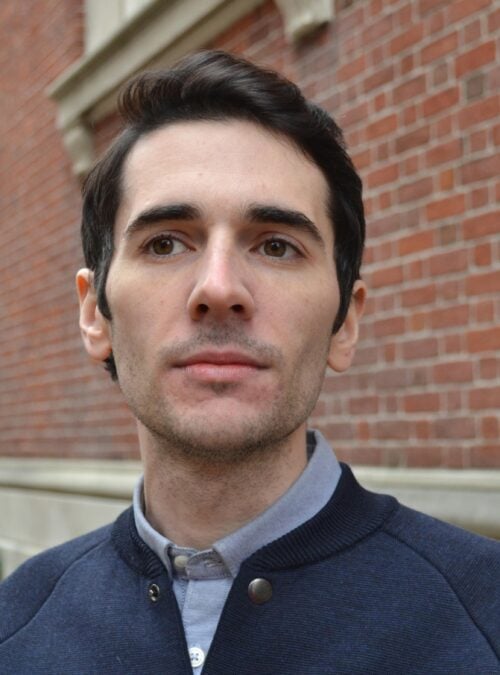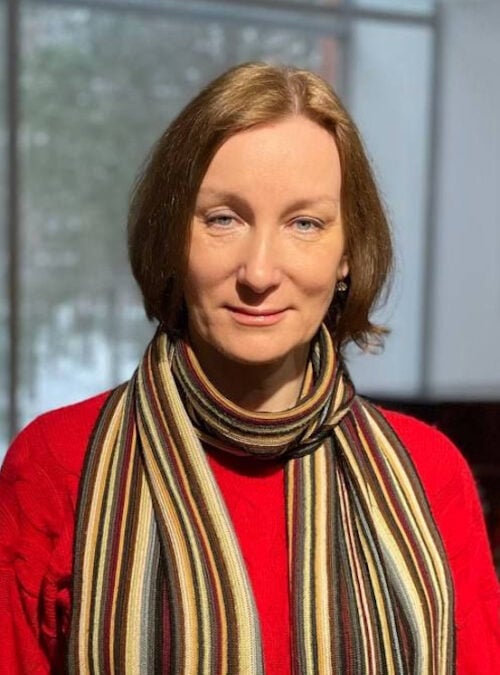Interview with Jaroslaw Mikolajewski, Poet, Writer and Translator from Italian into Polish
Author: Fabio Troisi, Director of the Italian Cultural Institute in Warsaw

A poet first and foremost, a writer, a former director of the Polski Institute in Rome, and currently the scientific director of the Museum of Literature in Warsaw. He is one of the main translators from Italian into Polish.
First question, very banal. What was your first encounter with Italian literature like? When and how did it happen?
It was 1974, I was fourteen years old. They had just opened the first high school in Polish history where Italian was taught on a par with English. I had just heard a beautiful translation of Cesare Pavese on the radio and fell in love with it. I applied for admission to the high school, and then I read all of Pavese’s works. A few years later, the Italian Cultural Institute, in the person of Romolo Cegna, the director at the time, announced a language competition, and I was among the winners. This prize was absolutely essential because it allowed me to go to Italy for the first time. I knew from that moment on that I couldn’t do anything else. Then there were other important events – for example, in 1980, I was on a train to Perugia: by mere chance I found a book of poems left by someone. An easy-to-read text. The author was from Perugia, Sandro Penna. When I arrived in Perugia, I went in search of his house, the things he had left, to understand his story. Penna’s poems were one of the first works I published. Finally, during the time of the Martial Law, in 1980, my first work as a poet was supposed to be released, but I decided against publishing with the regime’s publishing house. I went to the Poniatowski Bridge and threw all my writings into the river. Then I dove frantically into translation, I saw the translation of Italian poems as a lifeline for me. I realised that to be a writer I didn’t have to be a poet, I could also be a translator. It was at that time that I developed this parallel side of my writing.
About this parallel side, does your activity as a poet interfere or contribute to your activity as a translator and vice versa?
In the 1980s in Poland, studying literature meant studying translation, and vice versa, there was no distinction. During our training, most of us were specialists in English or Spanish, and I was the only one who did Italian. We wrote, we translated, we were writers and translators. We were able to identify the specific qualities of the contribution of different literatures. I realised that Italian had its own specificity: a certain harmoniousness, a certain beauty, a certain rhythm, a certain euphony. The most important thing about the Italian language is to preserve the context in which poetry is born. Italian poets devote much of their attention to respecting the moment when the poem was born, what stirred it, what kind of observation, what kind of experience was at the source; for me this is the greatest contribution of the Italian language. I pay close attention to this aspect myself, trying to leave a sort of imprint, a memory of the birth of the feeling of poetry, from the experiences that generate it.
Dante, Petrarch, Michelangelo Leopardi, Montale, Ungaretti, Luzi, Penna, Pavese, Pasolini. From a strictly editorial point of view, does poetry in general and Italian poetry in particular have an impact on today’s society?
Probably not, it remains a niche product. According to some Polish critics, nothing important has happened in twentieth-century Italian poetry. Of course, others, including myself, disagree, but this mindset has stuck. I started to self-publish my translations after Poland became a democracy, because only since then have we been able to collaborate with the institutions. I published several volumes of texts that I had left in a drawer until then. At the time, I was collaborating with the Italian national newspaper Corriere della Sera and I spent all the money I earned on publishing books. For the first time since the post-war period, we published a volume of Leopardi’s poems in Polish. We promoted it ourselves, in the streets, we were pioneers. Today the situation is different, but still a very limited number of copies. For example, an anthology of poems by Eugenio Montale translated by three young poets from Poznan and a volume of poems by Tonino Guerra were published recently. Before, there was no one else, I was alone. I wrote a letter to these translators because I finally felt free of an obligation. Anyway, I’m still publishing: I’m about to deliver a volume of Umberto Saba for the publisher Austeria in Krakow. And then Fabrizio De André is coming out.
As far as Italian literature in general is concerned, what do you think is its current situation in Poland?
Communism had many faults, but also some merits, especially the management of public libraries: even today, you can find everything there, not only Italian literature, but also literature from all over the world, classified with great skill. That’s unthinkable in today’s bookshops. It was obviously also a way for the regime to domesticate and isolate what came from the outside, to make it a kind of unreal world. When I started studying Italian literature in the 1970s, I found translations of Il Gattopardo, Cassola, Fenoglio; and when authors came to the Institute, our professors made us attend the presentations of their books. These were precious moments, when we discovered moments of freedom that had been denied to us. From my point of view, Italy and its literature represented happiness.
In your opinion, which Italian book is missing in Poland, which has not yet been translated?
Hypnerotomachia Poliphili. It is one of the most surreal and fascinating untranslated books that I know of; in my opinion, it could become a “trendy” book, and even from a scientific point of view, it could make an important contribution to our discussions on postmodernism. Another great book that has not been translated, in my opinion, is The Other Truth. Diary of An Other by Alda Merini.
As we mentioned earlier, you have translated many classics. What would you say is your greatest achievement as a translator?
Without a doubt, the Divine Comedy. Both because I had to change my approach and method of translation, and especially because for the first time there was an attempt to make Dante readable for Poles. My translation is certainly less beautiful than the previous ones, it may even be ugly, but there is no question that readers now understand the text.
Is Dante still relevant in Poland in 2023?
Absolutely. It is very topical. When I read “ I came to myself within a dark wood“, I see an immigrant lost in the Bialoweza forest, on the border with Belarus. Masterpieces have this capacity to be always relevant, after all. I have also completed a theatrical adaptation, for which I am seeking support from theatre institutions in Italy. In the Wood of the Self-Murderers, it is clear that the theme of circularity between man and nature is addressed. And today, Ulysses’ journey is on dinghies, and we probably try not to see him. There are many themes that touch closely on Polish sensibilities: the peculiarity of being an exile, for example, comes up in an author like Mickiewicz in the 1800s, a time when Polish exiles met in ex-pat circles. Today, Dante‘s words address the cruelties of the contemporary world, the barbed wires, the many islands of Lampedusa that we refuse to look at.










